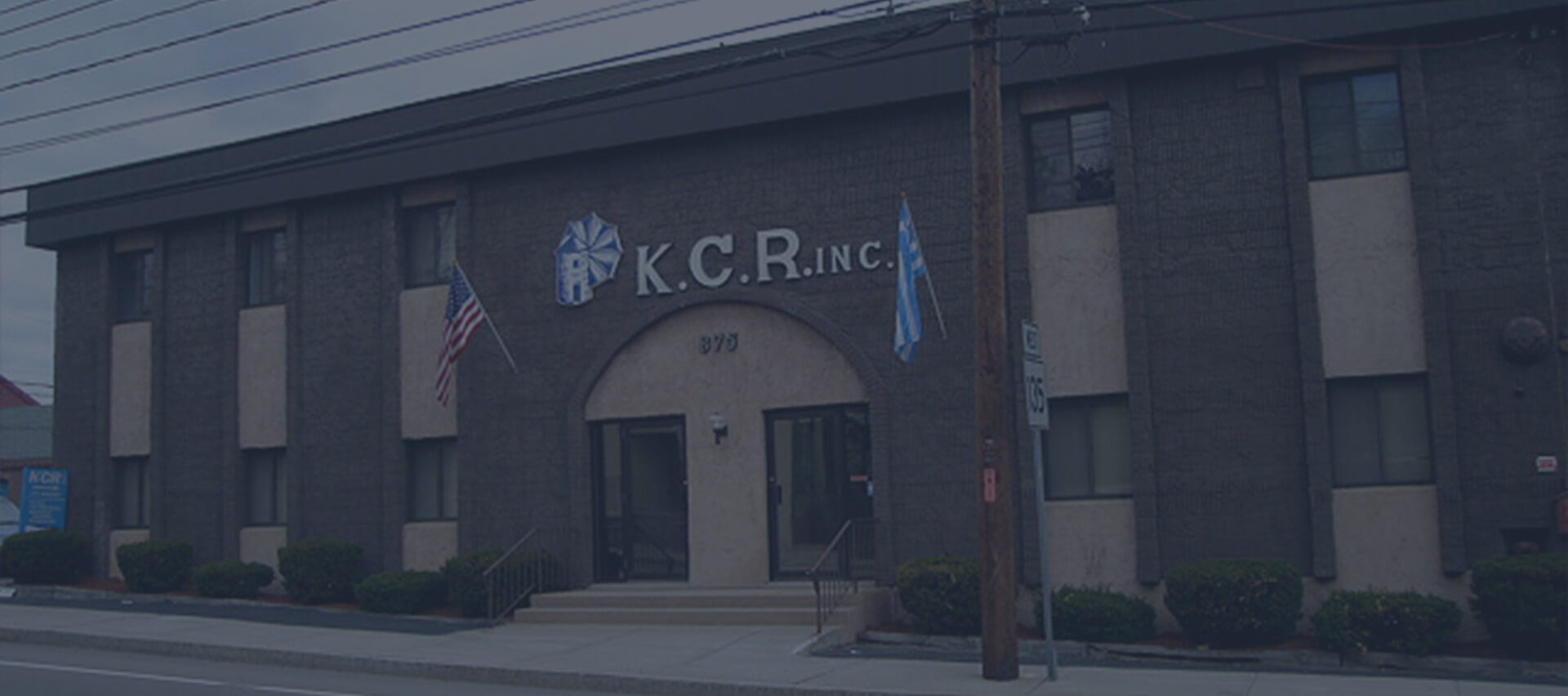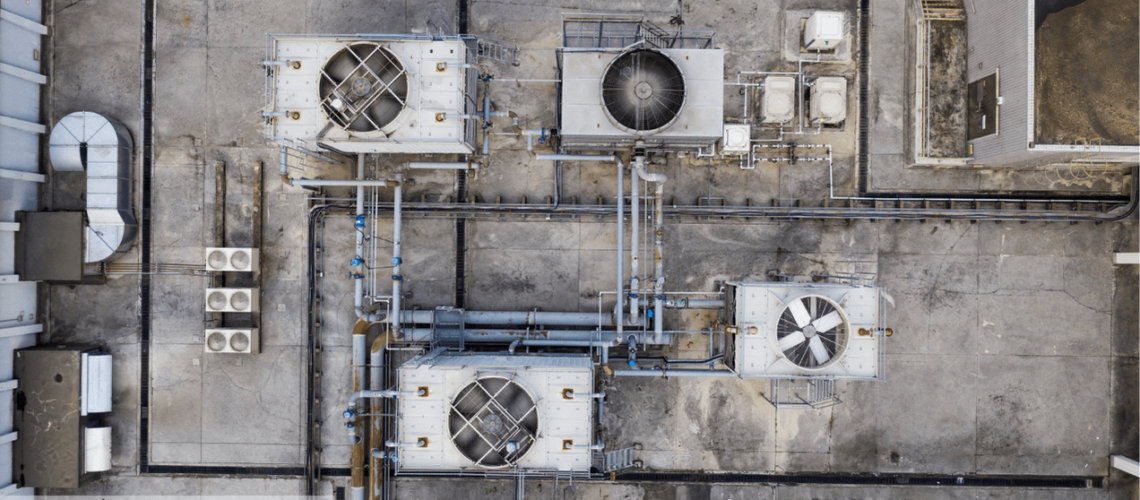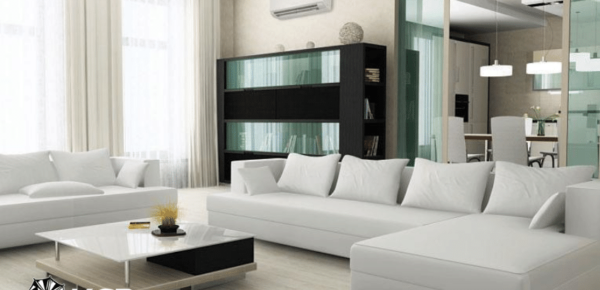What is the Difference Between Commercial and Residential Air Conditioning?
While all air conditioning units heat and cool air, they don’t do it in the same way. For example, the commercial AC in a local store is fairly different from your home’s residential AC.
In this article, we’ll cover the main differences between commercial AC and residential AC.
Commercial AC vs. Residential AC: The Differences
1. Size
The most obvious difference between the two HVAC systems is size. It’ll hardly come as a surprise that commercial AC systems are much larger than residential systems.
A residential system has to cool a set number of rooms (say 5-10) that aren’t too big. A commercial system might only have to cool 1 or 2 rooms, but they’re massive. Consider a supermarket. The shop floor counts as one room, but it’s easily larger than an apartment.
As a result, a commercial AC system has bigger fans, evaporators, compressors, and blowers. It’ll also run on a different thermostat. Something like a Mitsubishi commercial mini-split might be on the small side for a commercial system, but its parts are still bigger than a residential one.
2. Complexity
Similarly, a commercial system is far more complex than a residential one. The commercial system will still include the same fundamental components for air conditioning, but commercial systems are more adaptable.
For example, a residential AC system will have a network of vents running through walls and under floors. When installing, the crew will likely fix the cooling system to an outdoor wall.
A commercial system, on the other hand, depends on the building’s layout. Its complexity also depends on the building’s purpose and size, as some activities need better air circulation.
While the Mitsubishi comfort systems are complex for a residential unit, they’re nowhere near as complicated as a standard commercial system.
3. Placement
Residential AC units are usually fixed to an exterior wall or onto a window. Generally, these are the most accessible locations for repair work. There’s very little reason why an AC unit at your home would be on the roof.
Commercial units typically sit on the building’s roof for better noise control and access. But, it’s also a space-saving measure because of how large these systems are. Air conditioning repair is much easier in a commercial space if you don’t have to interrupt what’s going on in the building.
Of course, if shared, apartment air conditioning units are usually placed on the building’s roof. But, these systems are more similar to commercial AC than residential AC.
Need help finding the right Air Conditioning unit for your space?
4. Equipment
The equipment used in a commercial air conditioning system is much larger and more powerful than residential parts. Cooling a commercial space is more energy-intensive and will experience greater temperature fluctuations than a residential one.
For example, a supermarket AC system must deal with the heat kicked out by commercial refrigeration units and the humidity of fresh produce and lots of visitors. The same logic is true for a restaurant.
However, a residential system won’t need to deal with as much variation in temperature and humidity. For the most part, the temperature in a well-insulated building remains quite consistent, as does the humidity.
5. Drainage
Poor drainage is a common reason for air conditioning repair. A residential AC unit drains into a small pan outside the home, overflowing if not cleaned and maintained.
Even so, a residential system won’t deal with as much water as a commercial one. Due to the sheer size of commercial air conditioning, it needs complex drainage systems using pipes and trays to ensure there’s no chance of overflowing.
After all, if the drainage weren’t up to scratch on something like a Mitsubishi commercial mini-split, it wouldn’t take long before it broke down. In a commercial setting, the last thing you want is a broken AC.
6. Installation
Commercial AC systems are modular, making them easier to install and adapt depending on building size and purpose. After all, needing different size AC systems for different buildings would be very resource-intensive and wasteful.
A residential system comes as a single system. Sure, you have indoor and outdoor parts, but you buy the whole unit with something like the Mitsubishi comfort systems. There’s generally no reason you’d need a modular design for your home unless it’s massive.
Using modular systems in commercial spaces makes it possible to upgrade them when necessary. It also makes air conditioning repair much easier, as you can repair or replace the defective part rather than buying a whole new system.
Considering the amount of work the system does, it’s a much more cost-efficient method. Plus, fixing a few parts rather than replacing the whole unit helps to save time too.
7. Maintenance Costs
It probably is no surprise that maintaining a residential AC unit is much cheaper than a commercial system. Residential units come in plenty of designs, but they follow the same basic structure and setup. Therefore, HVAC technicians can usually switch between makes and models with little issue.
For commercial systems, maintenance costs are higher. It’s mainly because the systems are bigger and more complicated, meaning it takes more time and training to know your way around them.
The same is true for air conditioning repair, which is cheaper for residential systems too.
You won’t often find HVAC technicians who work on commercial and residential air conditioning units because of their differences. Just as many other professions specialize, so do HVAC technicians.
Key Takeaways
As you can see, there are numerous differences between commercial and residential air conditioning. While they both cool air, commercial systems do so on a much bigger scale.
Regardless of whether you run AC at home or work, maintenance is vital. Air conditioning repair can get expensive, and you can avoid costs with regular checkups.
As experienced HVAC technicians, we’re the best people to call for both maintenance and air conditioning repair. If your system has any problems, contact us for more information on how we can help.
THE HOME COMFORT EXPERTS
Your HVAC solutions should work for your family’s exact needs. For nearly 50 years, KCR has provided residences and businesses with peace of mind and temperature control. We’re proud to serve our customers with efficiency and flexibility in managing your efficient home heating and air conditioning.
You can also follow us on Facebook for exciting product updates and promotions!







